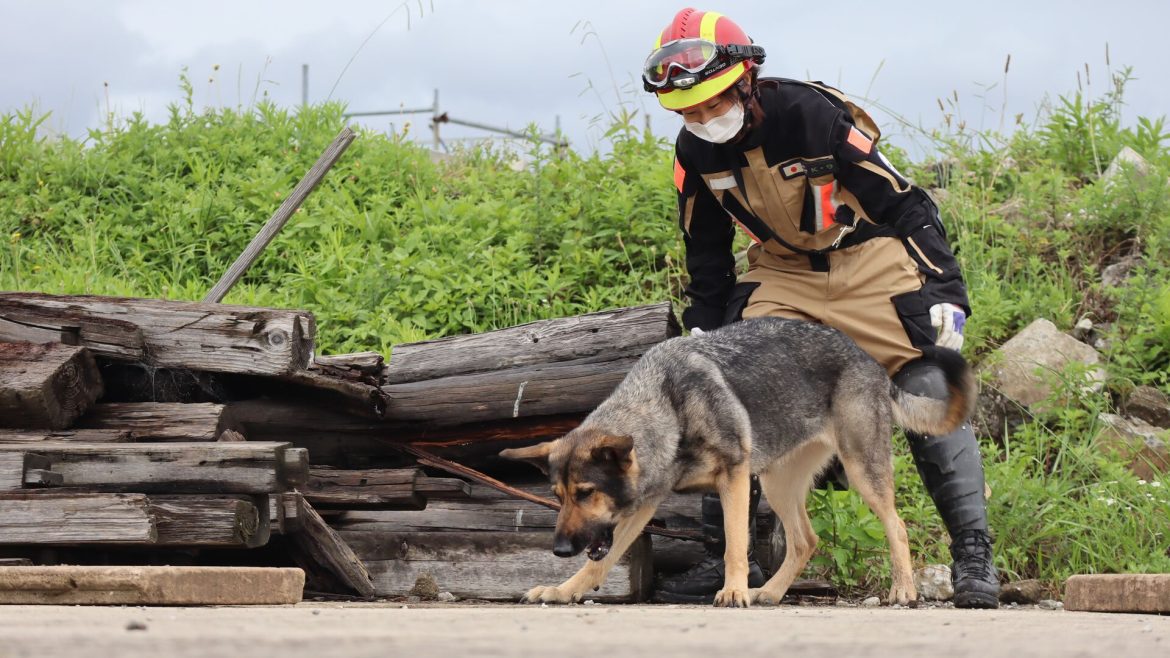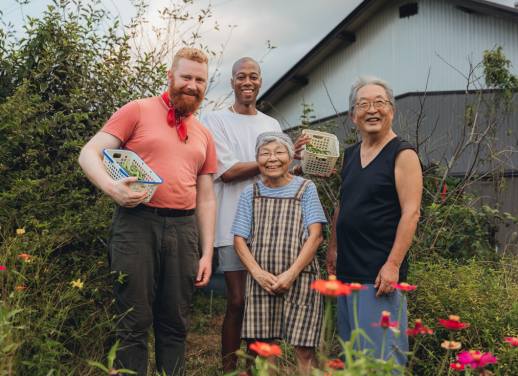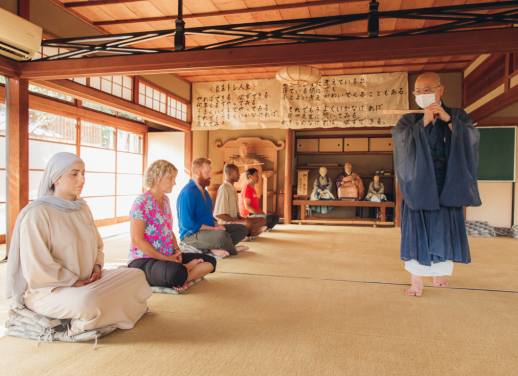In Japan, one dog’s devotion became legend. Now, Intrepid Foundation partner, the Japan Rescue Association, is turning this age-old bond into action – training dogs to save lives and heal trauma in disaster zones around the world.
There’s an age-old story in Japan about a dog named Hachiko. It was the 1920s and Hachiko would walk with his owner to Shibuya station each morning and then return alone in the afternoon to greet him after work.
This quiet, heartwarming ritual continued for almost a year and a half, until one day, Hachiko’s owner failed to meet him at the station on his way home. The man had died unexpectedly from a cerebral haemorrhage and never made it back.
Still, every day, Hachiko kept returning. For almost 10 years – whether out of hope, loyalty or a combination of both – he made his way to the station each afternoon and waited.
His story captured hearts across Japan. Word spread of his devotion and people flocked to meet Hachiko, the dog who embodied chugi – the Japanese virtue of unwavering loyalty.
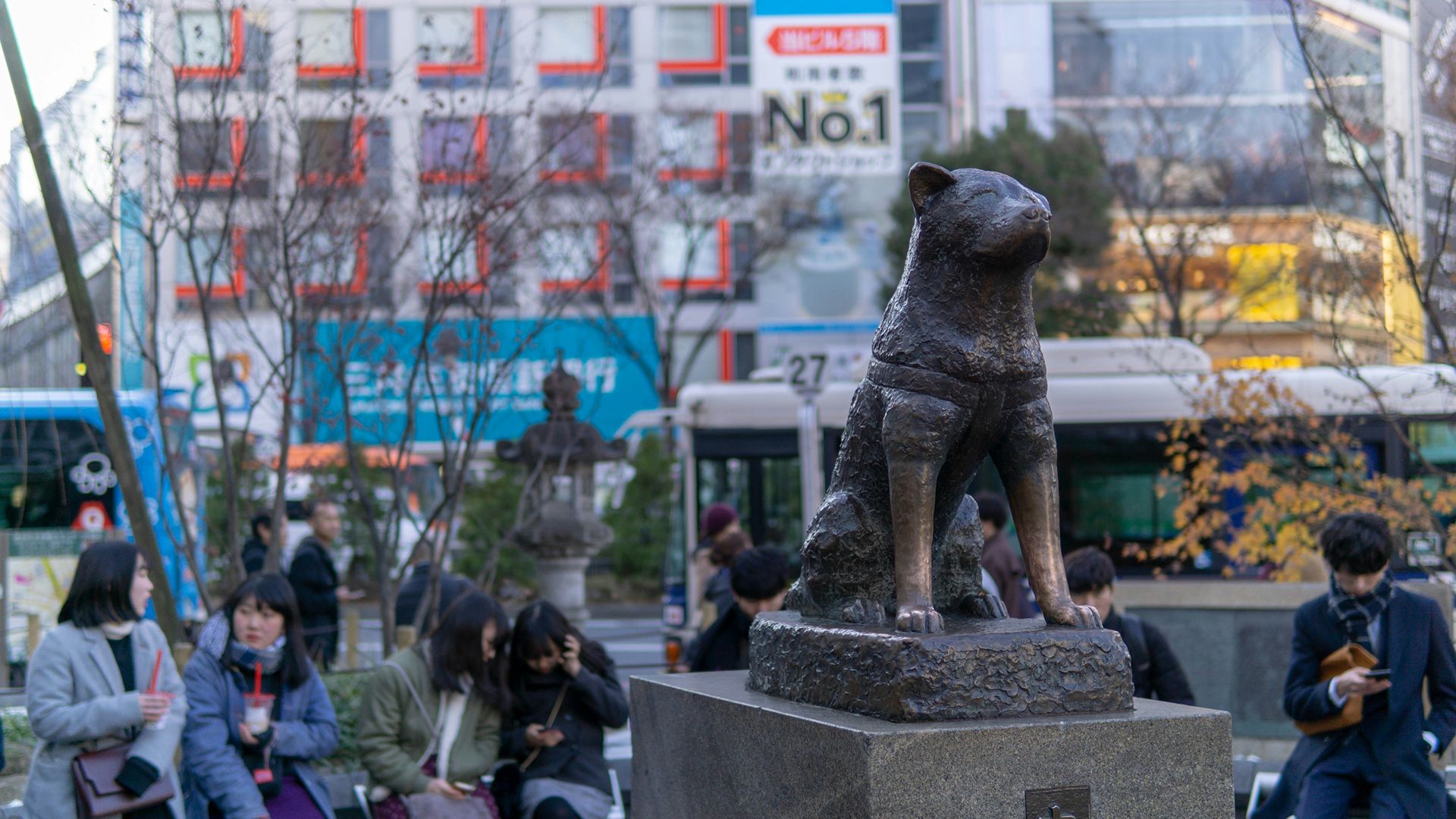
News articles covered the story globally and a statue was erected in Hachiko’s honour at Shibuya station. Still to this day, the entire nation celebrates the story of Hachiko – it’s taught in schools and 8 April is known as ‘Hachiko Day’.
But beyond this, there’s evidence in Japan of a deep cultural connection to dogs dating back to ancient times – with archaeological digs revealing dog burials from thousands of years ago that suggest they were seen not just as pets, but as valued family members.
Today, this bond is being harnessed into action, impact and second chances by one specialist organisation, the Japan Rescue Association (JRA), which has elevated the country’s canine companions to the status of superheroes.



From loyalty to lifesaving
In 1995, the 6.9 magnitude Great Hanshin earthquake that rocked Japan killed more than 6400 people, injured over 35,000 and left more than 300,000 homeless.
At the time, other countries, including the United States, Switzerland, Italy and Turkey, had established rescue-dog crews to support in natural disasters where their keen sense of smell and agility could help locate people among rubble well before human rescuers.
However, in the immediate aftermath of the Kobe quake, Japan had virtually no rescue-dog infrastructure, with just a handful of trained canines in the country. It wasn’t until Swiss rescue dogs – flown in to assist – made it through three-day quarantine delays that sniffer dogs could finally be deployed.
Japan sits on the Pacific ‘Ring of Fire’, which means natural disasters like earthquakes, tsunamis and volcanic eruptions are common for the nation. These kinds of events, that leave people trapped beneath rubble and buildings, are where trained disaster rescue dogs excel.
Subscribe for more inspiring stories and travel deals
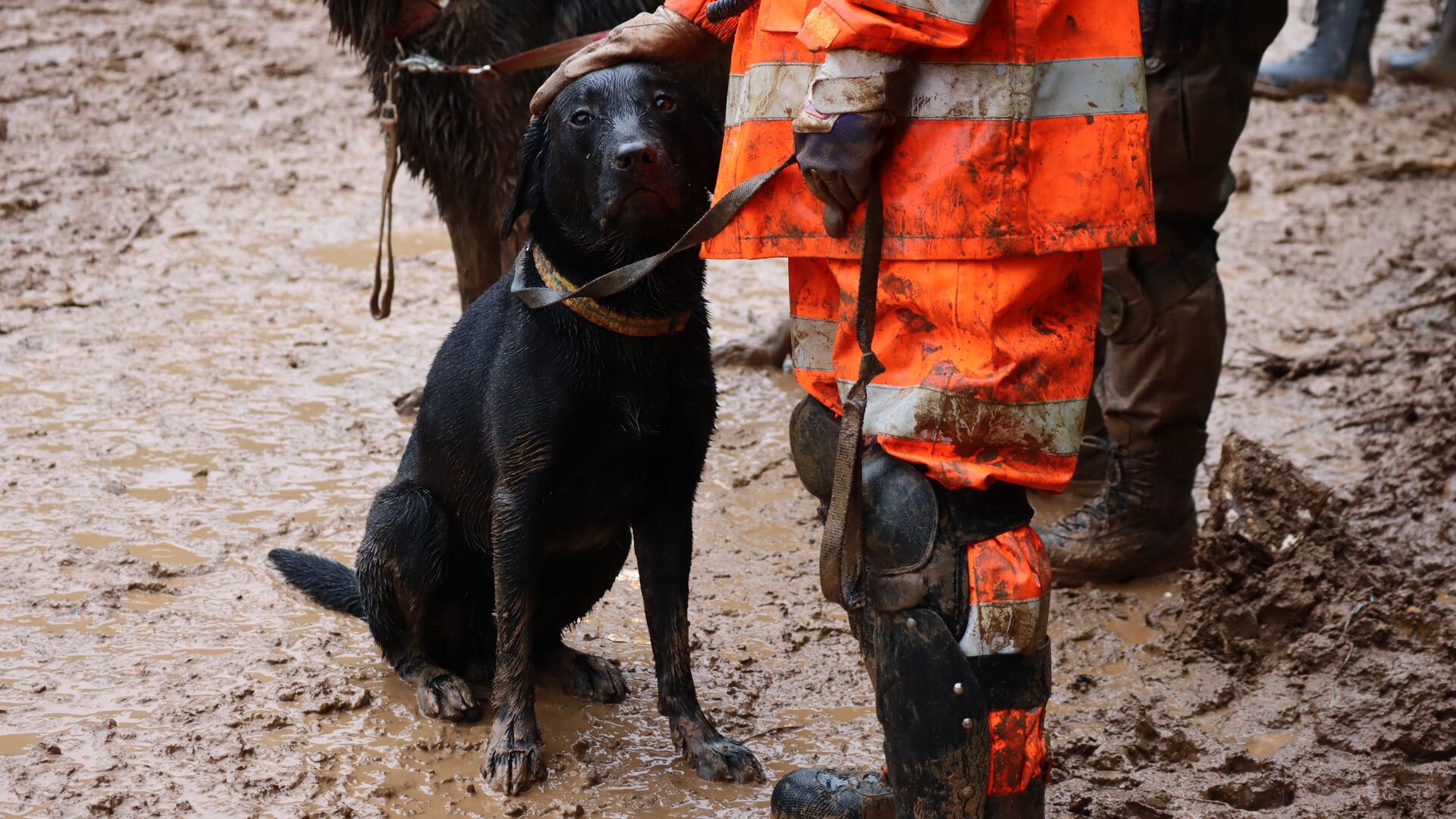
Well-trained dogs can cover search and rescue areas like these much faster than humans. Plus, they can sniff out survivors, improving recovery times, which is crucial to finding people alive.
The 1995 disaster in Japan highlighted the need for urgent change and sparked the creation of the Japan Rescue Association shortly after – a non-profit organisation, dedicated to training emergency response and therapy dogs.
Naoto Matsuzaki, vice president and one of the founding disaster rescue dog handlers of JRA, puts his mission simply: ‘I heard that if there had been disaster rescue dogs in Japan at the time, more lives could have been saved. I felt that a specialised organisation was necessary in Japan, so I established one. Every day, I work with the desire to save as many lives as possible.’
Since 2024, they’ve also been a partner of The Intrepid Foundation – a global network of NGOs that create impact on the ground in Intrepid destinations around the world. JRA were handpicked by Intrepid’s local team in Japan after they learnt of their work to help humans and dogs alike.
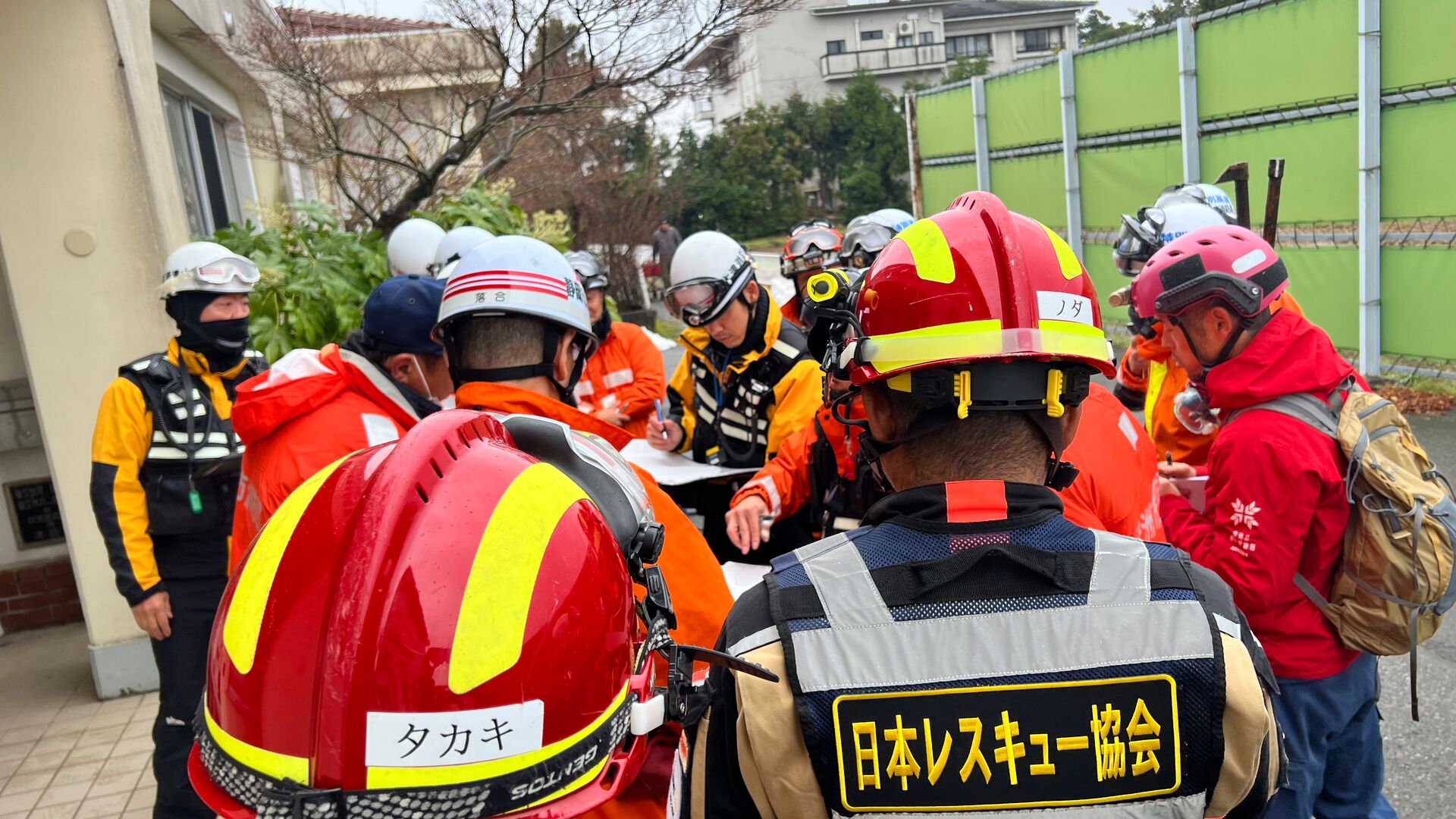
Four-legged responders
Since it was founded in 1995, the Japan Rescue Association has pulled off a multifaceted humanitarian and animal-welfare mission across three decades. The organisation’s rescue dogs and their trainers have been there for some of Japan’s worst natural disasters, including the 2006 landslide in Kyotango and the 2016 Kumamoto earthquake. They currently have four active dogs at disaster sites and seven in training.
Beyond Japan, they have also been flown to nearby countries to help in the wake of their disasters, deploying dogs to support during the 1999 Turkey, 2001 India earthquake, 2010 Sumatra earthquake and 2015 Nepal earthquake, among others.
At its core, the organisation carefully trains dogs to do the extraordinary – finding survivors in collapsed buildings, rummaging through rubble and comforting disaster victims. Based in Itami city in western Japan, they use special facilities that mimic real disaster zones, with daily training that builds fitness, resilience and search capabilities.
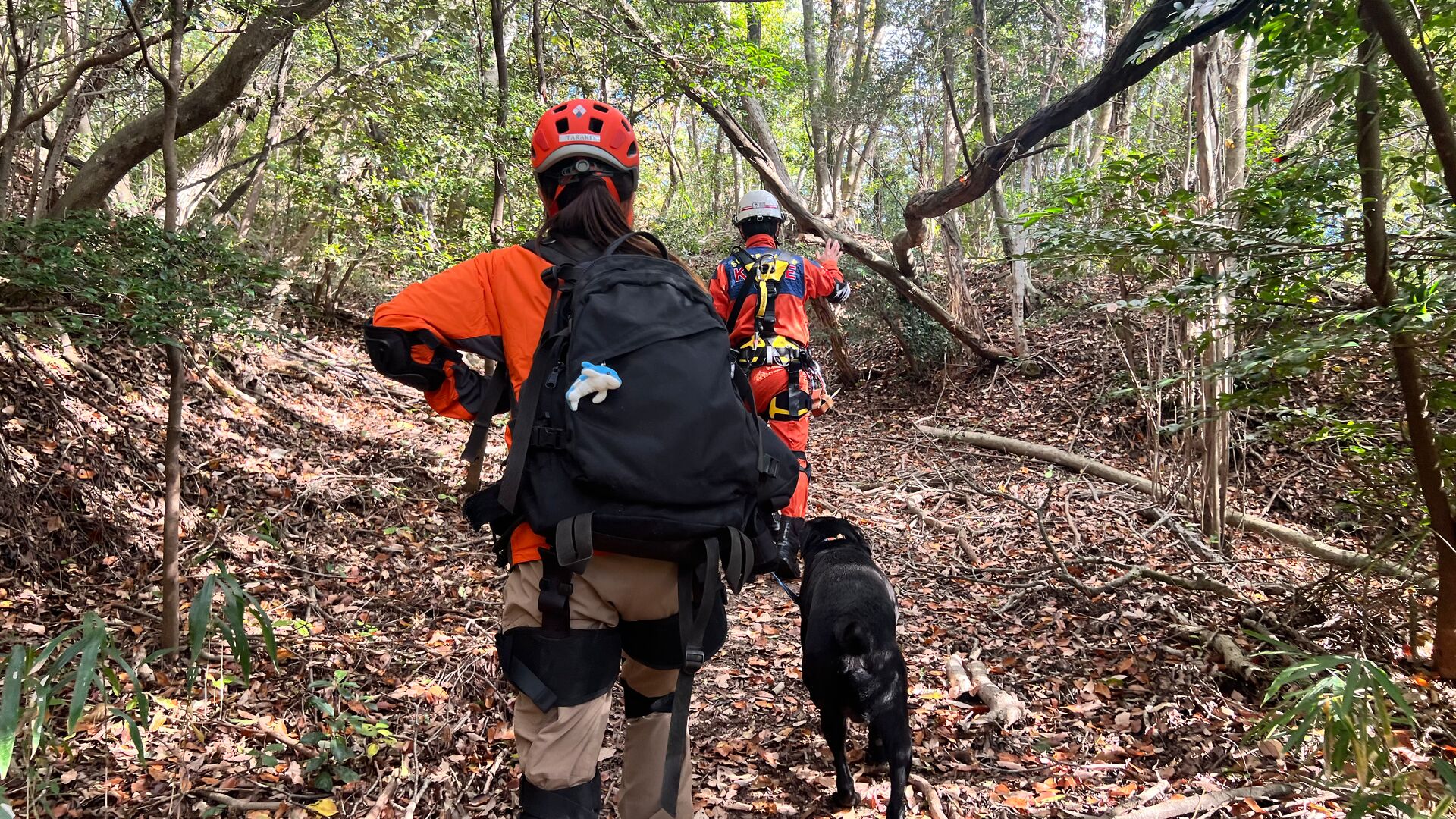
But these dogs don’t just serve, they heal. JRA also trains therapy dogs to work with people in hospitals, nursing homes, schools and even disasters such as the Kumamoto earthquake and the Great East Japan earthquake, providing emotional support, comfort and relief.
Puppies are purchased from breeders with past pedigree in producing disaster-response dogs and then trained for up to three years to become a rescue dog. Many of the therapy animals are rescues themselves – saved from shelters throughout the country and, when suitable, trained to offer comfort and support to humans in need.
Read more: This Tokyo robot cafe is all about human connection
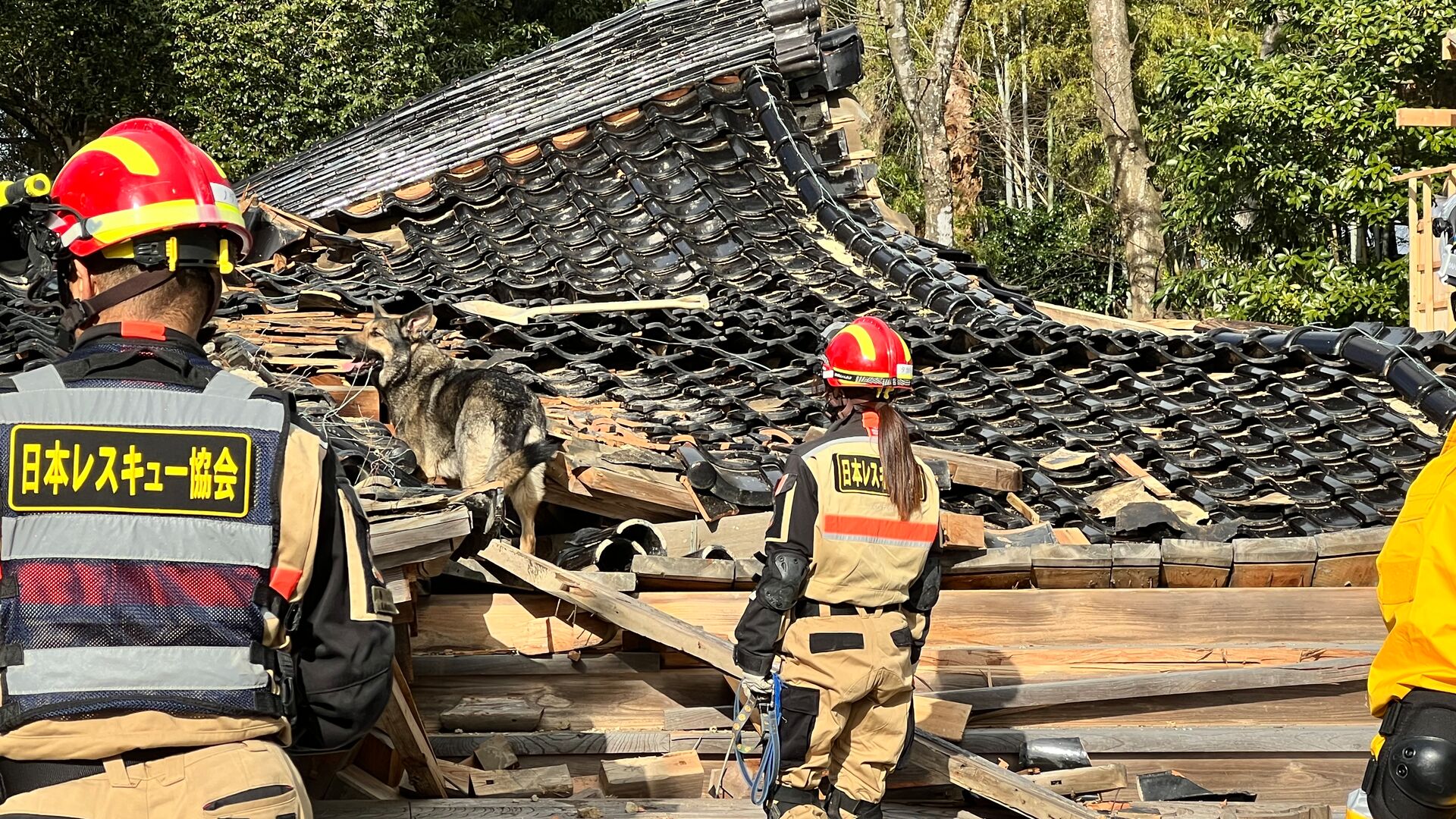
Human’s best friend
Travellers on a number of Intrepid’s Japan trips visit Hachiko’s statue at Shibuya station and hear his story from their local leader first hand. Just as Hachiko’s tale captured the hearts of people across Japan, it seems the rescue dogs at JRA have struck a chord with Intrepid’s travellers, with many choosing to donate to the organisation.
Travel exposes us to the struggles faced in other countries and communities and, with Japan averaging one to two major earthquakes graded over seven on the Richter Scale each year – and over 150 significant earthquakes with a magnitude of five or higher – travellers are often compelled to support.
Since partnering with The Intrepid Foundation in September 2024, more than AUD 25,000 in donations has been disbursed to JRA via The Intrepid Foundation.
One person said they had donated ‘for the Hachikos everywhere, who love and support the humans who need it most.’ After so many years of unwavering loyalty in the form of canine chugi, it’s hard to argue with that.
You can donate to Japanese Rescue Association via The Intrepid Foundation and Intrepid travellers on select Japan trips can also see Hachiko’s statue at Shibuya Station.

